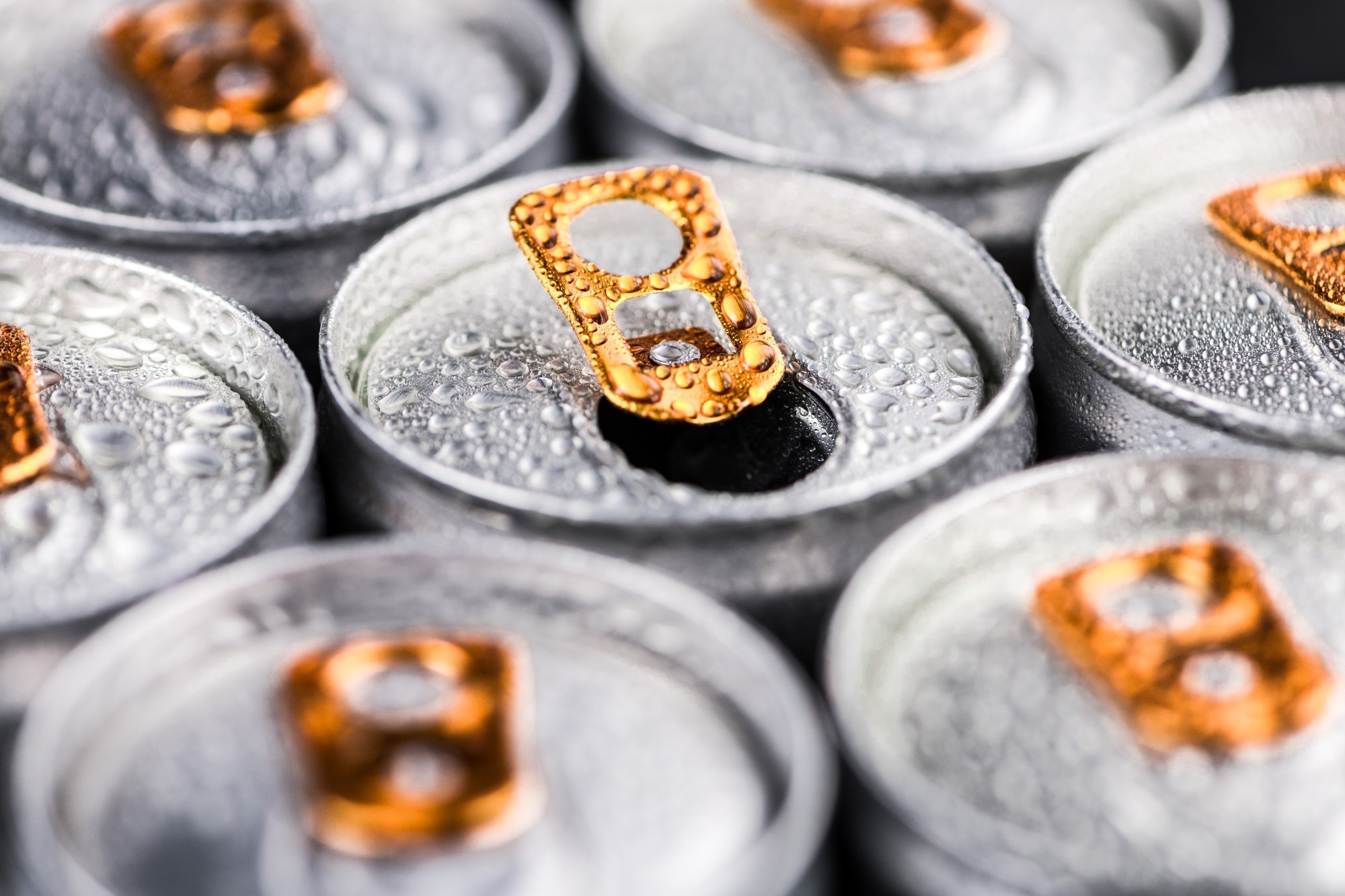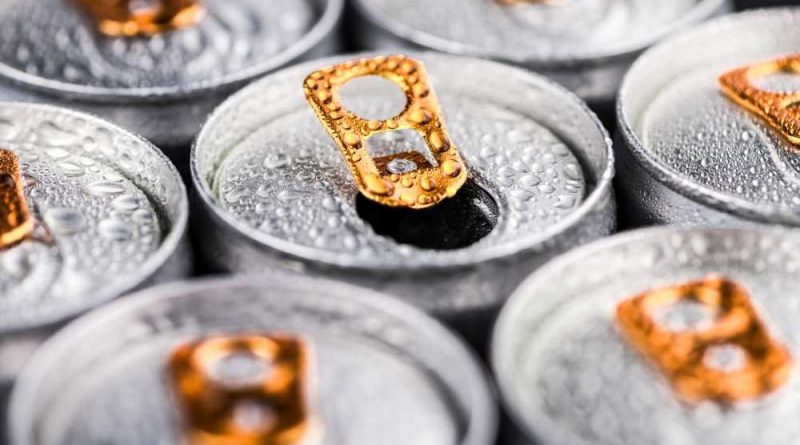ratio acyclovir 400 mg
Energy drinks have become extremely popular among young people and athletes because of their purported performance-enhancing capabilities. However, despite marketing a wide range of such drinks, often as diet supplements, there is little data on how these affect the differentiation of muscle fibers. A new study published in the journal Scientific Reports explores murine myoblast response to eight different energy drinks in terms of enhanced or reduced muscle repair processes.
 Study: Effects of energy drinks on myogenic differentiation of murine C2C12 myoblasts. Image Credit: HandmadePictures / Shutterstock
Study: Effects of energy drinks on myogenic differentiation of murine C2C12 myoblasts. Image Credit: HandmadePictures / Shutterstock
Introduction
Since its first entry into the US market in 1997, aggressive marketing strategies targeting athletes and youth have significantly increased the consumption of energy drinks. As a result, the global energy drink market is expected to grow exponentially from $53.01 billion in 2018 to $86.01 billion in 2026.
These beverages are consumed mainly by young men between 18 and 34 years. Available data shows that one in three adolescents regularly ingest these drinks, mainly due to intensive marketing campaigns targeting young people and athletes.
These beverages are unregulated by the US Food and Drug Administration (FDA). However, the ingredients in these drinks, including caffeine, sugar, rush caught with viagra going to multiple stimulants like taurine, L-carnitine, yerba mate, and ginseng, as well as some vitamins, could increase the risk of multiple diseases affecting the cardiovascular, renal, digestive, and nervous systems, in addition to dental damage.
Caffeine, which acts via adenosine receptors, stimulates the central and peripheral nervous system, and in excessive amounts, it can trigger sleep disruption, anxiety, jitteriness, and even digestive disorders. Taurine is believed to promote cognitive functions and regulate voluntary muscle function, and perhaps reduce oxidative damage in muscle cells following strenuous exercise.
Glucuronolactone is touted to increase mental performance, but with little evidence to back it. Sugar is also present in large amounts.
However, taurine and glucuronolactone may affect the nervous system adversely. Excessive sugar is known to cause irregular heartbeat and blood pressure and promote obesity.
“This is a growing public health concern because energy drink consumption has been associated with fatal outcomes related to the cardiovascular system such as myocardial infarctions, cardiomyopathies, and sudden cardiac death.”
Apart from these effects, nothing is known about how energy drinks affect muscle recovery after injury, which is very common during eccentric muscle contraction.
Myogenesis, also known as myogenic differentiation, is the term used to describe the arrest of cell division among myoblasts, which then fuse to become syncytial myotubes with enhanced muscle-specific gene transcription.
This occurs during both embryonic and adult life. In the latter stage, it occurs as satellite cells become active when skeletal muscle strength is to be maintained or damage is to be repaired. These are Pax7-expressing stem cells.
Myogenesis involves an intricate network of regulatory factors, leading to the activation, migration, division, and differentiation of satellite cells into new myotubes, thus restoring the damaged muscle fibers to a healthy state.
The current study focuses on the impact of energy drinks on myogenesis in teenagers and athletes. The researchers tested two products each from four major energy drink brands, namely, RedBull, Monster, Rockstar, and Celsius.
What did the study show?
They exposed differentiating myoblasts in vitro to each of the eight selected products after a four-day initial period without such exposure. The researchers used an array of dilutions to detect cytotoxicity as well as other effects on myogenesis.
In most cases, the beverages were not cytotoxic at 1:5 and 1:50 dilutions in growth medium, but both Celsius brands (Live Fit and Heat) produced cell death at the former level. With Live Fit, 14% of the cells died, rising to double the proportion with Heat.
With dilutions in differentiation medium, the story took a different turn. Most of the drinks did not produce cell death at 1:50 dilutions, but at 1:5, there was a profound effect, with 20-30% of the cells displaying cytotoxicity. Only RedBull Zero did not show this dramatic shift with dilution.
Further tests of the effect of each drink on myogenic differentiation were carried out at these two dilutions. Compared to controls, all the drinks produced a dose-dependent inhibition of myogenesis.
With the two Celsius drinks, this was almost total, demonstrated by the virtual absence of MHC+ nuclei (a marker of myocyte differentiation) at !:5 dilution. At 1:50, however, their effect was much weaker.
Cell viability was thus affected by energy drinks in vitro, but different with the type of medium. The increased cytotoxicity with Celsius drinks could be due to the doubled caffeine concentrations compared to the other beverages since caffeine is strongly cytotoxic.
In fact, caffeine has earlier been shown to inhibit myogenesis and to disrupt differentiated myotube function.
Six of the drinks at this dilution also suppressed myotube formation, as shown by the sharply decreased fusion index. The two exceptions were the RedBull drinks, perhaps because of their two-fold higher vitamin B6 content. This vitamin is vital to myogenesis.
Most of the drinks did not induce myotube atrophy at 1:5 dilution, but Celsius Live Fit reduced the myotube diameter significantly.
As expected, the expression of the regulatory protein MyoG, and differentiation marker MCK, involved in this process, were also reduced for most of the drinks. Rockstar Sugar-Free had a lower inhibitory effect compared to Rockstar at both dilutions.
What are the implications?
More research data indicates the association of energy drinks with sudden serious cardiovascular events, including heart attacks, cardiac arrhythmias, and sudden death. In addition, neurological symptoms, including hallucinations, panic attacks, arrhythmias, and seizures, among many others, have frequently been reported.
Yet much remains to be known about energy drinks and their long-term consequences on health. This in vitro study paves the way for further comparative studies.
“These results indicate that all energy drinks have an inhibitory effect on C2C12 myogenic differentiation with some variation between the beverages.”
Further research is required to identify the source of these variations since the eight drinks used here had different formulas.
This data could help support the need for energy drink regulation by the FDA, given the aggressive marketing of these beverages to young people and athletes.
- Park, S. Y. et al. (2023). Effects of energy drinks on myogenic differentiation of murine C2C12 myoblasts. Scientific Reports. doi: https://doi.org/10.1038/s41598-023-35338-7. https://www.nature.com/articles/s41598-023-35338-7
Posted in: Men's Health News | Medical Science News | Medical Research News | Women's Health News
Tags: Adenosine, Adolescents, Anxiety, Blood, Blood Pressure, Caffeine, Cell, Cell Death, Cell Division, Cytotoxicity, Diet, Exercise, Food, Gene, Ginseng, Heart, heat, in vitro, Muscle, Nervous System, Obesity, Protein, Public Health, Research, Sleep, Stem Cells, Sudden Cardiac Death, Supplements, Taurine, Transcription, Vitamins

Written by
Dr. Liji Thomas
Dr. Liji Thomas is an OB-GYN, who graduated from the Government Medical College, University of Calicut, Kerala, in 2001. Liji practiced as a full-time consultant in obstetrics/gynecology in a private hospital for a few years following her graduation. She has counseled hundreds of patients facing issues from pregnancy-related problems and infertility, and has been in charge of over 2,000 deliveries, striving always to achieve a normal delivery rather than operative.
Source: Read Full Article
